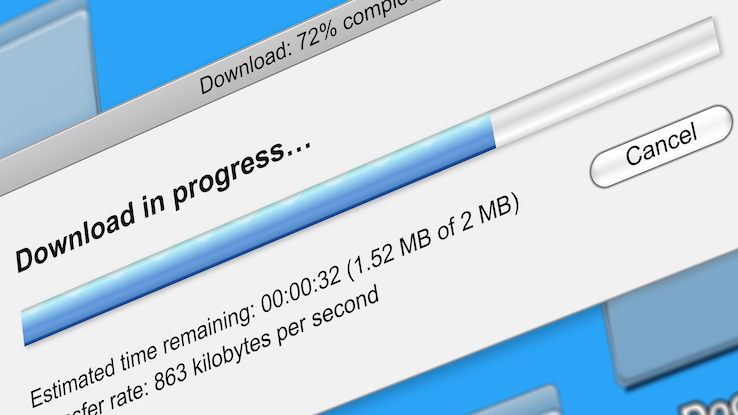Is It Safe to Download Videos Online?

Whether you want to save a viral Facebook video to send to all your friends or you want to keep that training for online courses from YouTube on hand when you’ll need to use it in the future, there are plenty of reasons you might want to download videos you find online. But, you might also wonder if it’s okay to save the media you find online — from both ethical and personal-security standpoints. Before you download the first browser extension you come across or paste a URL into a potentially shady video extractor, it’s important to learn about how to — and when you can — download videos online safely.
When Is It Okay to Download Online Videos?
YouTube, Facebook, even TikTok — plenty of sites are known for providing high-quality, user-generated video content. But is it actually okay to download videos from these and other sites? Generally, if the content is likely copyrighted — say it comes from a streaming TV channel or news station — you shouldn’t download it. However, there’s some grey area when it comes to things you find on social media and other sites, and it also matters what you’re going to do with them.

YouTube is one of the sites from which people most commonly want to download videos (or just the audio from those videos). Its terms of service require you not to copy, distribute, transmit or sell content that you didn’t create that’s uploaded to the site unless you have explicit written permission from YouTube or the original creator to do so.
However, there are some situations in which it may be okay to download media. If you already own the videos — say they’re posted on your YouTube channel — and you want to back them up? That should be okay. If you’re doing a response video or parody and want to reference someone else’s content, you may not get into trouble. Videos that have Creative Commons licenses or that are public domain are also usually okay to download. However, it’s best not to save content that someone else created, especially if it’s their intellectual property and they’re monetizing it. Just remember that downloading anything off of YouTube violates the terms of service no matter what, but it’s not a criminal act to download public domain or Creative Commons-distributable video.
Protecting Yourself While Downloading
Just as you take precautions when opening an email that might be a phishing scam, you also need to take precautions when downloading videos online. File-sharing torrent websites and some video extractors, which are the sites on which you paste in the URL of the page that has the video you want to download and the site downloads a copy, may be infected with malware that they deposit onto your computer when you open the downloaded files. For this reason alone, it’s best to avoid torrent sites in particular — you have no idea who uploaded the content and what they might’ve done to it in the meantime.

Instead, look to trustworthy sources for obtaining downloads. If you’re using Google Chrome as your browser, for example, visit the Chrome Web Store to search for extensions you can add that help you download videos. These usually have ratings from users about their performance, and you can spend some time researching what other people recommend as the safest options. Look for those that are highly rated and the most frequently downloaded; they’re generally the safer choices.
Make sure the sources you’re downloading from are also safe. YouTube videos usually don’t have malware attached. You might also opt to download certain content like videos from Netflix, which you can save to your computer and watch later offline. Streaming services that allow you to do this are almost always safe because that functionality exists specifically so you can download videos — just don’t distribute them or try to make money off of them. You should also run a virus scanner on files after you’ve downloaded them. Chrome and other browsers may incorporate these and automatically scan files to make sure they’re safe. Enable this option if you haven’t already.
Surefire Safe Saving
If you want to save a video that you’re sure is safe to keep — maybe it’s something personal a family member shared on social media and you have their permission — there’s one way to do so that may be the safest: screen recording. Many computers and other devices these days are equipped with this feature, which creates a video of whatever you’re playing on the device’s screen while the recorder application is running.

There are a few limitations with this; for example, you’ll need to let the video play the whole way through and have the volume level up while you’re recording. However, there’s no risk of malware contaminating the files because they’re created on and saved to your device only. This isn’t exactly a download, but it is a safe option if you want to save video.





